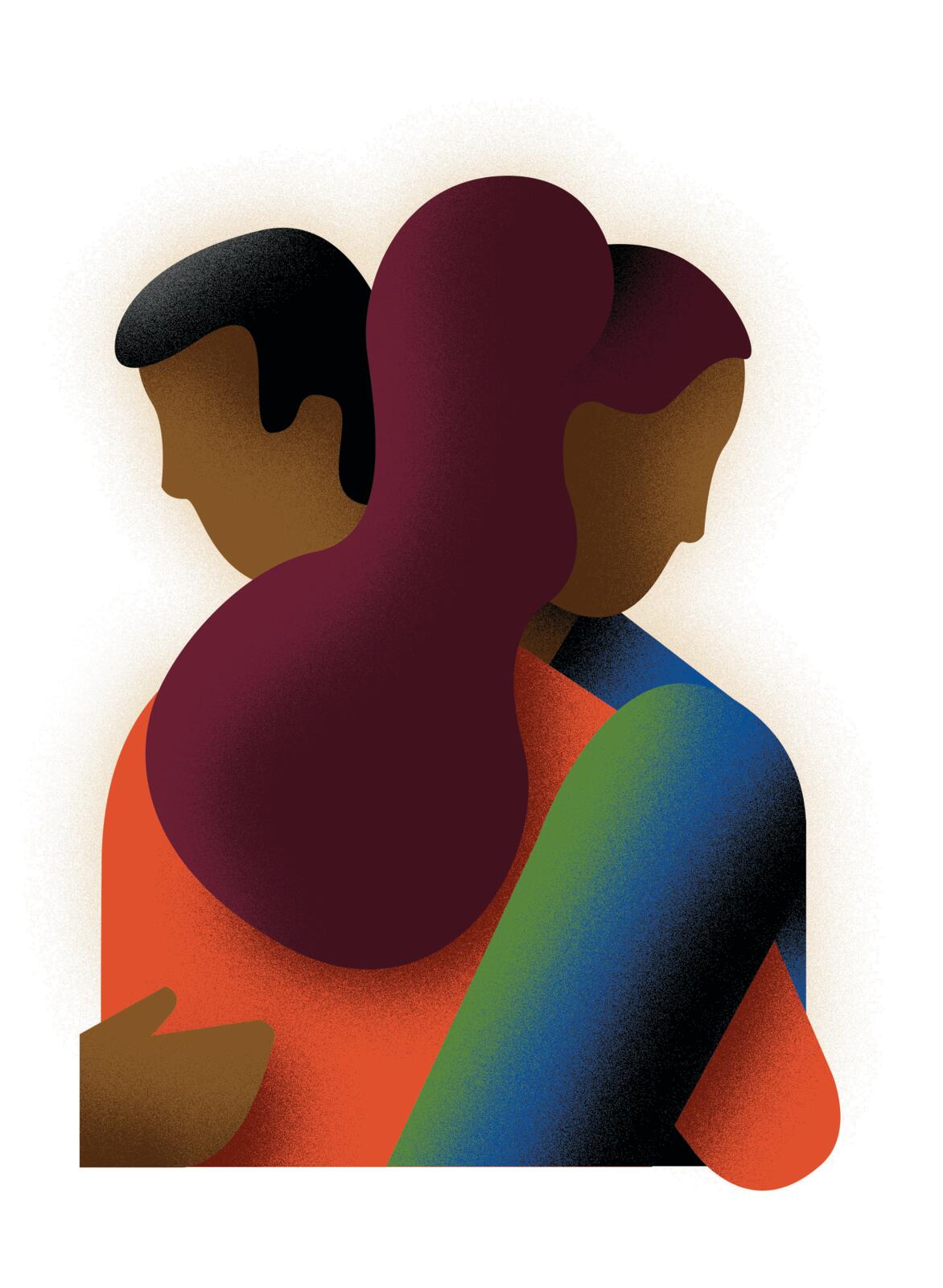
This story is featured in the May/June 2024 issue of ESSENCE.
Jared Wright, 36, of New York, vividly remembers the moment he received the news that changed his life. He recalls the doctor walking in, taking his hat off and saying, “I’m sorry—you’re diagnosed with non-obstructive azoospermia.” Recounting this, Wright says, “I felt like somebody died.”
Infertility is the diagnosis one receives when conception doesn’t occur after a year or more of having unprotected sex. Poor sperm quality—azoospermia—is usually the cause. This shows up as low sperm count, little or no sperm in the ejaculate or inability for sperm to move easily to fertilize an egg. Blockages can also prevent the delivery of sperm. “If you have had a really bad testicular infection, those can scar the tubes that carry the sperm from testicle to the ejaculate,” says Ronald Anglade, M.D., a urologist in Atlanta. Age can also be an important factor.
Based on a 2013 report titled “Infertility and Impaired Fecundity in the United States,” which followed men from 2006-2010, around 9 percent of men of reproductive age in the U.S. experience infertility—and for one-third of infertile couples, the difficulty is caused by the male party. Black men have the highest infertility rate at 13.2 percent, with Hispanic and Asian men showing 12.8 percent infertility rates, and White men 11 percent. Only 1 percent of men seeking infertility treatment were Black.
When it comes to the ability to procreate, some Black men believe it’s tied to their identity. “We live in a society with a very narrow conceptualization of manhood and masculinity,” says Darren D. Moore, Ph.D., L.M.F.T., Clinical Professor & Associate Director of Clinical Training and Supervision for the Marriage and Family Therapy Masters Degree program at The Family Institute, Northwestern University. “Particularly in the Black community, a man is someone who can produce revenue and produce children. A man’s ability to produce is associated with his perceived strength. Therefore, if he presents with fertility issues, he is often ridiculed and sometimes has his manhood questioned.”
Addressing the Stigma
This mindset about the nature of manhood is so pervasive that partners often find themselves automatically blamed when an inability to conceive arises. Brandon Johnson of Virginia, 43, now a Black infertility therapist, recalls his wife being offered an egg donation because of this assumption. His desire to protect her—and remove the stigma of infertility—led him to open up about his diagnosis, which he received at 32. “At the time, I thought I was less than a man,” admits Johnson.
For Carl E. Lambert Jr., M.D., a family physician in Chicago, his own infertility diagnosis was a “come to Jesus moment.” Lambert, 38, and his wife had not conceived after close to a year of trying, and he was initially reluctant to be evaluated. “There was a little bit of denial there,” he says. “And I think for a lot of guys, that might be the first response.” When he finally made it to the doctor, he found out that he had a low sperm count.
Getting an infertility diagnosis engenders big emotions. “We go through the stages of grief and loss, because you are losing a valuable part of you,” Johnson explains. He says it’s important that men allow themselves to go through the anger, depression, bargaining and acceptance that comes with that grief, understanding that you can move back and forth throughout these processes.

Help Is Available
“If you’re having difficulty having a child after trying for a year or two, don’t keep trying for five, six and seven years without being evaluated,” says Anglade. After an initial semen analysis, your urologist will let you know what your options are. If your sperm count is low, you may be prescribed clomid and/or HCG, to increase testosterone and sperm production. If sperm is present, either in the semen or needing to be extracted from the testes, intrauterine insemination (IUI) may be the first recommendation. If that doesn’t work, your doctor may recommend in vitro fertilization (IVF).
Lambert was evaluated one year after trying unsuccessfully to conceive with his wife. The couple was finally able to welcome a child through IVF. They went on to have a second child without assistance. Wright had surgery for varicocele—scrotal varicose veins—to correct his condition. He has since tried sperm retrieval for rounds of IVF, but no transfer has been successful to date. He and his wife plan to continue trying with their remaining healthy embryos.
Though assisted reproductive treatment is very costly, Wright credits his health insurance plan as a New York State employee for his ability to afford it. However, he still pays between $200 and $250 per semen analysis. Since May 2023, 21 states have passed new fertility-insurance coverage laws, and 13 have fertility-preservation laws for medically induced fertility. Resolve, the national fertility association, is a popular resource for understanding your options for health insurance coverage and other support services.

Moving Forward
“I had to figure out whether it was more important to have a child that came from my loins or to be a father—and I wanted to be a father more than anything,” says Johnson. “So we started looking into different ways to have children.” After numerous unsuccessful IUI attempts, Johnson and his wife adopted a child.
Amid trying to make one’s parenting dreams a reality against the odds, he recommends getting back in touch with yourself. That includes finding a hobby that sparks joy or releases pent-up pain. “Anger builds tension and that builds up in your body,” he says. “A physical activity will help to release it.”
Anglade agrees that consistent movement—and cultivating a healthy lifestyle, including no drugs—is significant for men who are ready to have children. “You want to stay active; you don’t want to be obese—maintain a good weight,” he says. “Smoking is a big risk factor that causes infertility, so no nicotine or marijuana.”
Most importantly, according to Moore, is for men to be able to educate themselves and others. “We need safe spaces to learn about infertility and opportunities to process our personal experiences,” he says. “We also need support as we deconstruct our identities, in an effort to reconstruct them, in a way that does not allow fertility status to determine one’s manhood.” Johnson agrees this is crucial—he no longer allows his diagnosis to impact the way he sees himself. “You are, as a person, greater than your infertility,” he says. “Your infertility is a part of you, but it doesn’t have to keep you down.”







